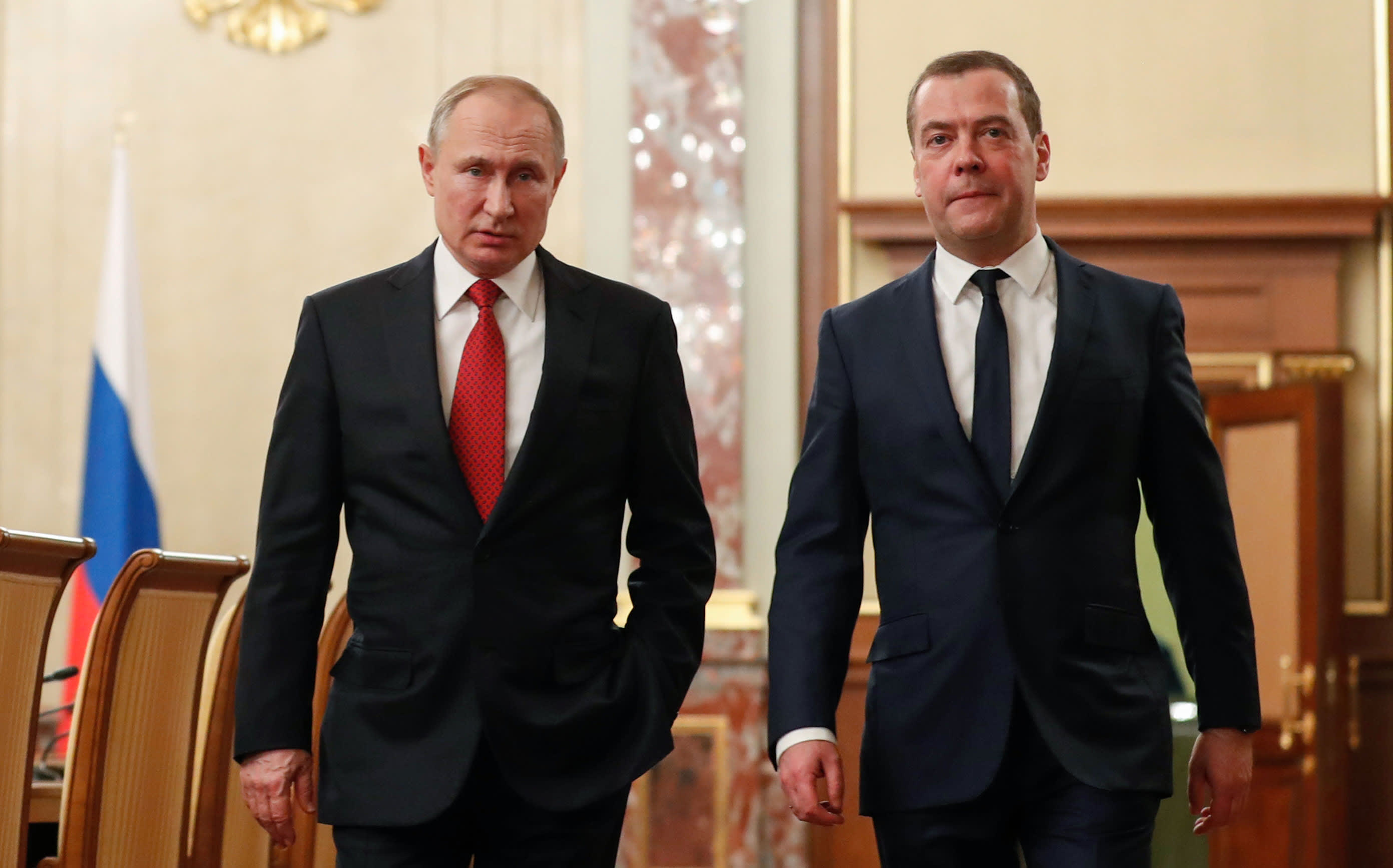Russia's government resigned Wednesday to make way for major new constitutional changes, according to the Tass state news agency, citing Prime Minister Dmitry Medvedev.
Without giving much detail, the news agency said President Vladimir Putin thanked Medvedev's government for its work. The move was reportedly made so Putin can carry out sweeping constitutional changes he spoke about at his annual address just hours earlier.
"For my part, I also want to thank you for everything that was done at this stage of our joint work, I want to express satisfaction with the results that have been achieved," Putin told a meeting of ministers, according to Tass.
"Not everything was done, but everything never works out in full," Putin said.
Later, Russian news agencies reported that Putin wants to appoint Mikhail Mishustin, the head of Russia's Federal Tax Service, as the new Prime Minister.
News of the governmnet resignation came after Putin's annual address to lawmakers. The Russian leader proposed a national vote on constitutional changes that would push power toward the prime minister and the parliament, and away from the presidency. It's seen as potentially limiting the power of Putin's successor if he steps down in 2024.
"After those amendments are adopted ... there will be significant changes not only to a variety of constitution articles, but to the balance of power, namely to the executive, legislative and judicial branches of power," Medvedev said, according to Tass.
The government in Russia consists of the prime minister, deputy prime ministers and federal ministers and their ministries and corresponds to the Western Cabinet-style structure. However, Moscow's political system is widely seen as being an autocracy with Putin possessing much of the power.
Putin, 67, has led Russia for two decades as either prime minister or president, shifting between the roles in the current Russian constitution that prevents someone from serving more than two consecutive terms as president. But the latest move could be a way for him to circumvent or scrap that rule entirely as his fourth term in office is due to end in 2024.
'Reach out to the West'
Timothy Ash, senior emerging markets strategist at Bluebay Asset Management, said the changes could be seen as Putin trying to refresh things with a new prime minister and government.
"(They'll be) more focus on reform, and improving the effectiveness of government to deliver growth and improving living standards," Ash said in a research note immediately after the news.
"Many people thought Putin would do this after presidential elections, but he gave Medvedev a bit more time," Ash added.
"I think all this is a response to opinion polls reflecting popular dissatisfaction with government and their lots in life, and ebbing support even for Putin," Ash wrote. "In terms of timing, Putin has waited until what he sees as the external risks from sanctions moderating. He will sell this new, fresh government as part of a fresh start/reach out to the West."
The dollar pushed higher against the ruble following the news, with the greenback up 0.4% on the Russian currency.
Adeline Van Houtte, a Europe analyst at The Economist Intelligence Unit, said the constitutional reforms would increase the powers of the prime minister and Cabinet members.
"This will fuel speculations ahead of 2024 (the end of Putin's second consecutive term). Putin will now be able to choose loyalists that he will put in power positions in his new government while he might be preparing to transition to a PM position with enlarged powers in 2024."
